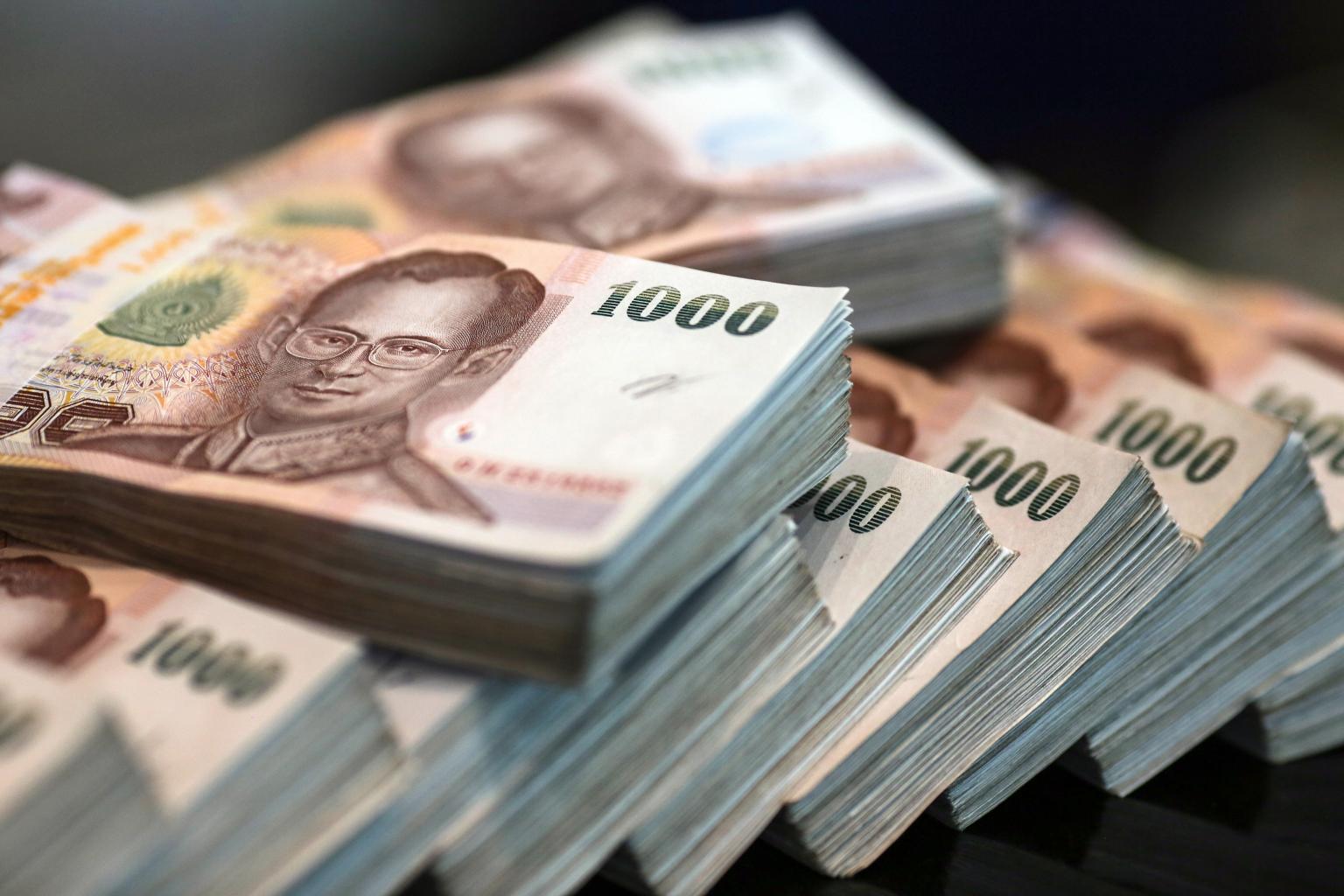Thailand's baht sinks to six-year low on outflows, China concern
Sign up now: Get ST's newsletters delivered to your inbox

Thailand's baht is at its weakest since September 2009.
PHOTO: BLOOMBERG
Follow topic:
BANGKOK (BLOOMBERG) - Thailand's baht plunged to its weakest level since September 2009 amid sustained outflows from local assets and a selloff in Chinese equities.
Global funds have withdrawn a net US$199 million (S$270 million) from Thailand's stocks and bonds this month, taking total outflows for 2015 to US$1.2 billion, data compiled by Bloomberg show The benchmark SET Index of local shares fell 0.5 per cent on Wednesday after dropping to an almost seven-month low Monday as investors grapple with potential risks stemming from Greece's likely exit from the euro and a stock rout in China.
The baht declined for a third day, retreating 0.2 per cent to 34.007 a US dollar as of 11:49 a.m. in Bangkok, according to data compiled by Bloomberg. The currency, which has lost 4.3 per cent in the past three months in Asia's second-worst performance, sank as low as 34.055 earlier. A gauge of dollar strength rose for a fourth day.
"Foreign outflows signal a weaker outlook for the baht," said Thanomsri Fongarunrung, an economist at Phatra Securities Pcl in Bangkok. "The ongoing anxiety in China's stock market and its economy has further weakened sentiment for the baht and other currencies in the region."
China, Asia's largest economy, is the second-biggest export market for Thailand after the U.S., accounting for about 11 per cent of total overseas shipments in the January-May period, according to a commerce ministry statement dated June 26.
Thailand's sovereign bonds climbed, pushing the 10-year yield down four basis points to 2.89 per cent, on course for its lowest close since June 3, according to data compiled by Bloomberg.

